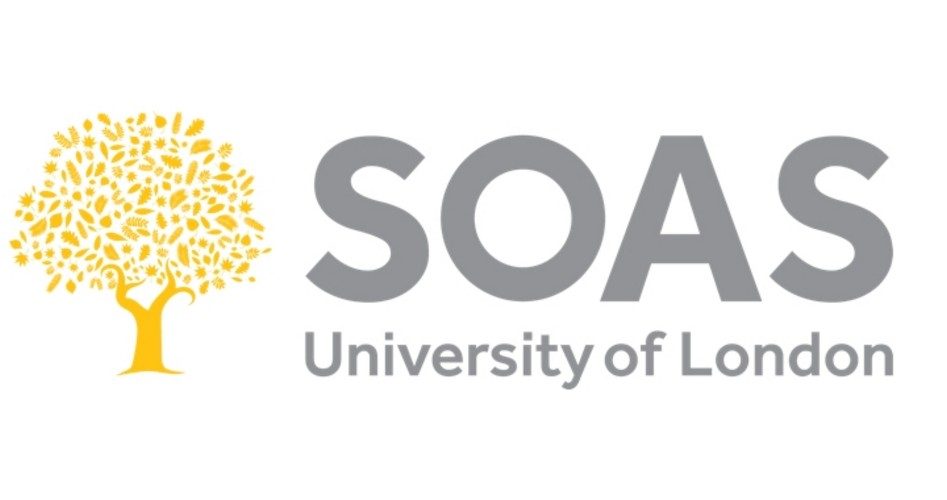
Institutions of higher education have increasingly become anti-white and make no attempt to hide it. Just last month, a professor at Drexel University tweeted, without repercussions, that his Christmas wish was for white genocide, while students at the University of Pennsylvania decided to remove a portrait of William Shakespeare in place of a photo of an African-American writer in the name of diversity. Now, students at the world-renowned University of London School of Oriental and African Studies (SOAS) are demanding that white philosophers be eliminated from the course curriculum.
According to the student union at SOAS, “the majority of philosophers on our courses” should hail from Africa and Asia, as opposed to white, Western philosophers such as Plato, René Descartes, Immanuel Kant, and Bertrand Russell. The union claims the change is part of an effort to “decolonise” the college, which they claim is a “white institution.”
In a list of educational priorities put out by the student union entitled “Decolonising SOAS: Confronting The White Institution,” the student union begins, “Whilst these priorities are primarily concerned with academic and educational issues, they are often informed by wider welfare, financial and extracurricular issues.” The statement was written by Ali Habib, a democracy and education union officer who serves on SOAS’s governing board of trustees, according to the Daily Mail.
The document describes “decolonizing SOAS” as a campaign that “aims to address the structural and epistemological legacy of colonialism within our university.”
It continues, “We believe that SOAS should take a lead on such questions given its unique history within British colonialism. In light of the centenary and SOAS’ aims of curating a vision for itself for the next 100 years, this conversation is pivotal for its future direction.”
The union lists several ways in which the school can achieve its goal of “confronting the white institution”:
1. To hold events that will engage in a wider discussion about expressions of racial and economic inequality at the university, focusing on SOAS.
2. To address histories of erasure prevalent in the curriculum with a particular focus on SOAS’ colonial origins and present alternative ways of knowing.
3. To interrogate SOAS’ self-image as progressive and diverse.
4. To use the centenary year as a point of intervention to discuss how the university must move forward and demand that we, as students of colour, are involved in the curriculum review process.
5. To review 10 first year courses, working with academics to discuss points of revamp, reform and in some cases overhaul.
6. To make sure that the majority of the philosophers on our courses are from the Global South or it’s diaspora. SOAS’s focus is on Asia and Africa and therefore the foundations of its theories should be presented by Asian or African philosophers (or the diaspora).
In accordance with this aim, white philosophers are only to be studied “if required.”
The final item on the list states, “If white philosophers are required, then to teach their work from a critical standpoint. For example, acknowledging the colonial context in which so-called ‘Enlightenment’ philosophers wrote within.”
Another goal listed among the education priorities is “tackling the attainment gap,” which the union claims unfairly impacts students of color and is the result of curriculum and teaching methods. The list of ways in which the union would like to see this gap addressed seems to ultimately involve allegations of racism whenever students of color are not as successful as their white counterparts:
1. Establish the infrastructure necessary for a strategy to reduce the gap.
2. Name and acknowledge institutional racism and attainment gaps.
3. Address institutional racism.
4. Address BME underrepresentation within the staff and student body.
5. Create systems for accountability.
6. Create an inclusive learning and teaching environment by defining what these terms mean and address the white curriculum by undertaking a full-scale audit of every course reading list.
7. Clarify and communicate existing support available.
The student union’s educational priorities are being blasted by educational experts and critics.
Philosopher Sir Roger Scruton criticized the union for what he perceives as an unfounded and ignorant agenda: “This suggests ignorance and a determination not to overcome that ignorance. You can’t rule out a whole area of intellectual endeavor without having investigated it and clearly they haven’t investigated what they mean by white philosophy. If they think there is a colonial context from which Kant’s Critique of Pure Reason arose, I would like to hear it.”
Even the head of SOAS’ Religions and Philosophies department, Erica Hunter, said that the views expressed in the educational priorities were “rather ridiculous” and that she would “firmly resist dropping philosophers or historians just because it was fashionable.”
And the vice-chancellor of Buckingham University, Sir Anthony Seldon, opines that the SOAS educational priorities are yet another example of political correctness run amok. “There is a real danger political correctness is getting out of control. We need to understand the world as it was and not to rewrite history as some might like it to have been,” he said.
Examples of this “political correctness run amok” are prevalent.
Last month, for instance, the Department of Communications at Cal State University at San Marcos (CSUSM) hosted its “Whiteness Forum” as the culmination of a course at the school called Communicating Whiteness, taught by Professor Dreama Moon. This year’s forum sought to help educators and students navigate the racially charged climate that has allegedly been intensified by President-elect Donald Trump’s victory by ultimately enforcing the notion of white privilege and taking advantage of white guilt.
“People of all races, genders, abilities, sexualities, and differences awoke on Wednesday, November 9th to a world that is more hostile, intolerant, and violent,” the forum’s event description read. “We will not sit silently. We will not be intimidated. We will bend our talents and our labor to make the world a safe space for difference.’”
Likewise, DePaul University banned conservative pundit Ben Shapiro from speaking on campus last year, with students at the University of Wisconsin even petitioning to revoke the charter of the Young Americans for Freedom for having the audacity to invite Shapiro to speak on campus. The petition by the “Student Coalition for Progress” read, “Shapiro has used his following and nationally syndicated media presence to deny the realities of systematic and institutional violences against Black and Brown people, sexual assault survivors, Muslims, LGBTQIA+ people, people with low income, people with differing abilities, undocumented immigrants, and anyone that is systematically targeted along identity lines.”
Unfortunately, the rabid anti-white sentiment that pervades college campuses does not appear to be dissipating anytime soon.


